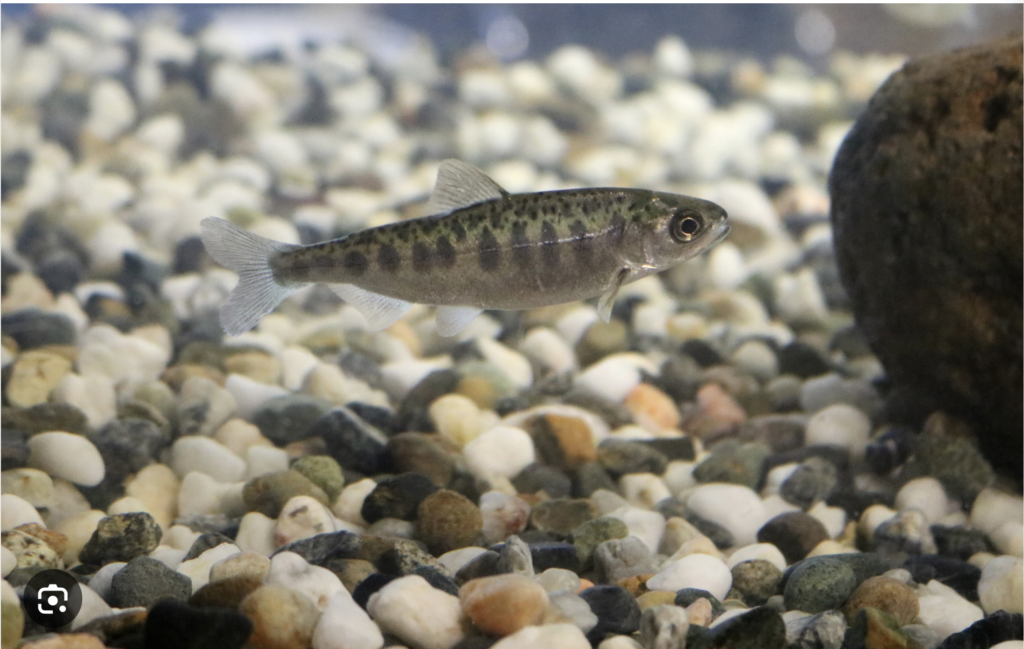
Saving the salmon has become an unquestioned goal in the Pacific Northwest. I was fine with saving salmon, but I wanted to do it rationally, which I didn’t think the Endangered Species Act did. This was my Post-Intelligencer business column of March 31, 1999.
Our governor proclaims that extinction of the state’s wild salmon is “not an option.” By saving the salmon, our local politicians tell us, we are saving ourselves. A local newspaper columnist assures us it’s OK to eat salmon, because we eat the fish in order to worship it.
My goodness.
Take away this bucket of sentimentality, and what’s left? A good investment? A wise application of public and private effort?
Well, it’s doubtful.
Start with the Endangered Species Act. Here’s a law that picks all species, from whooping cranes to microscopic snails, from redwoods to fungi. It declares them all equally valuable. In the case of salmon, a species that is undisputedly valuable, the Act has been interpreted to classify groups of fish runs as separate species.
What the law actually does is nothing, until officialdom declares the fish threatened or endangered. By then, they are almost dead. In Washington, we wait until several million people have moved here, cut down trees, built roads, dammed rivers, put countless streams into culverts, and then we allow a federal agency to proclaim a crusade to retrofit the human landscape for wild fish.
The law doesn’t appropriate an amount for doing this. It doesn’t say we should save the most important runs, or save the most salmon per dollar. It says: Save them. Whatever it takes.
How much is that? On the Columbia and Snake rivers, barging salmon and changing the stream flow has cost more than $400 million a year in cash and lost electric revenues. If you’re in Snohomish County, or another place that buys federal power, you have been paying for this for years.
And now, you are told, you have not been paying enough. We need to breach the dams. How many dams? Well, just a few. If that doesn’t do it, maybe some more.
Whatever it takes.
If people thought about it without having this federal law hammering at them, and weighed salmon as one value among several, they would do things much differently.
Suppose you were in charge. You had, say, $400 million a year with which to save fish. You could spend it on barging around dams. You could breach dams and compensate the losers of power and water. You could restrict the use of private land and compensate the property owners — something the current law should do, under the Constitution, but doesn’t. You could buy out fishing licenses. You could restore urban streams or protect rural ones.
How would you choose? You’d figure how many fish you saved per dollar, and whether you saved them for one year or for every year thereafter. You’d be investing, and you’d want to make the best investments. And what you’d find is that the best investments are far different from the ones you have to make under the Endangered Species Act.
The best investments are not heroic efforts to bring back runs from the dead, but to save runs that are still fairly healthy. You might buy the development rights along streams that have not been ruined. If more of these were on the Olympic Peninsula than in urban counties, so be it. The land is cheaper there. If you could afford it, you might buy whole drainages. You might add to parks and wilderness areas.
Roll ahead 10 years. Under current mandates, you’ve spent a fortune on barging fish, breaching dams and paying countless consultants to draw colored maps. You’ve hired officials to harass citizens with new regulations. Have you won? Why, no; you are just getting started. You are lucky if you have not lost.
This is a project that will take lifetimes. Entire careers. Well-paid careers.
Ten years of buying rural habitat and where are you? Ahead, and permanently so. Imagine Olympic National Park, expanded. I’ve tried the idea on people over the years and have gotten two responses:
First, they say, “The law doesn’t allow us to do it that way.”
Well, it’s not a law of nature.
More interesting is the second reply. Saving fish while they’re healthy won’t satisfy people because it’s the wrong fish.
Several experts have patiently explained this to me. The political reality is that those who worship salmon want to see them where they live. That means promising to save fish here in King, Pierce and Snohomish counties, not out on the Olympic Peninsula.
The promise feels so much better. We shall expiate the sins of a century of industry and good living. The reality — regulations and taxes, higher costs for land, housing and rents — will take longer to sink in. They will not feel nearly so good.
© 1999 Seattle Post-Intelligencer